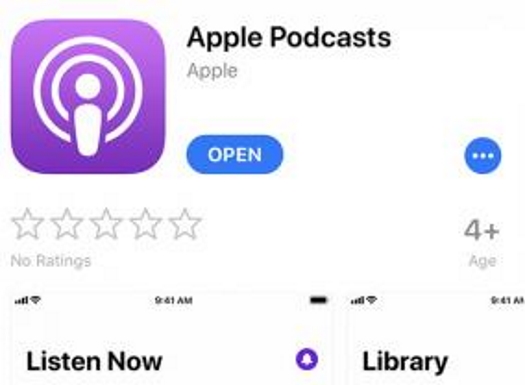Radio Tomorrow with James Cridland
Apple are making some changes.
You’ve probably heard about iTunes going away. In truth, this means little – iTunes “went away” on iPhones a long time ago, and this latest change is just replacing iTunes with three separate apps on the Mac. If you run a Windows machine, iTunes continues as normal. Apple have asked you not to talk about podcasts “being on iTunes” for the last 18 months anyway.
But there are also some changes to Apple Podcasts categories – the genres and names you use to navigate through podcasts. And those changes, which I list here, are substantial. I calculate around 70 new categories and 30 renamed or removed ones. The changes take place “in late summer”, which probably means the first week in September when the new operating system is normally released.
Now, Apple is responsible for nearly 90% of all podcast listens: because Apple’s database powers many other podcast apps, from Overcast to Pocket Casts, Player FM to Castro. Almost all podcast apps have used the original category list: but as far as I can discover, Apple didn’t talk to a single podcast app developer before announcing these changes. Every one will have to rebuild parts of their app in response.
They also didn’t talk to a single podcast hosting provider before announcing these changes. This was a complete surprise to them, and many hosting companies have privately expressed anger to me: “we’re scrambling,” one says, “we don’t get a head’s up”. Every one will have to rebuild part of their publishing process within just a few months.
The success of podcasting is partly because podcasts are available everywhere, not just on an Apple device. The same RSS feed that powers Apple Podcasts also powers many different services, like Spotify, Google Podcasts, and Stitcher. We don’t know what will happen to these services if we change categories just for Apple’s benefit.
The iTunes categories were Apple’s own invention, back in 2005, and their changes are good news and mostly well thought out.
However, on its own devices, Apple is responsible for just 62% of all podcast downloads — a figure that is falling. In spite of this, Apple has just arrogantly changed podcast categories for its own purposes without consulting any other part of the podcast community that this will affect.
This is partly podcasting’s fault. There is no industry association: a place where producers, app developers, podcast hosting companies and ad-tech companies can come together. There are no best-practice guidance documents for things as simple as “how do I display episode notes”, “should I cache audio” and “do I need permission from podcasters first before listing them”: and perhaps there should be. I’m keen that this, at least, changes.
However, it’s also an issue within Apple. As is clear from the release of this document, and the abject failure of the company to engage with any part of the podcasting community, it’s clear that they believe that they “own” podcasting. Because… they do not.
About The Author
James Cridland, the radio futurologist, is a conference speaker, writer and consultant. He runs the media information website media.info and helps organise the yearly Next Radio conference. He also publishes podnews.net, a daily briefing on podcasting and on-demand, and writes a weekly international radio trends newsletter, at james.crid.land.
Contact James at [email protected] or @jamescridland


